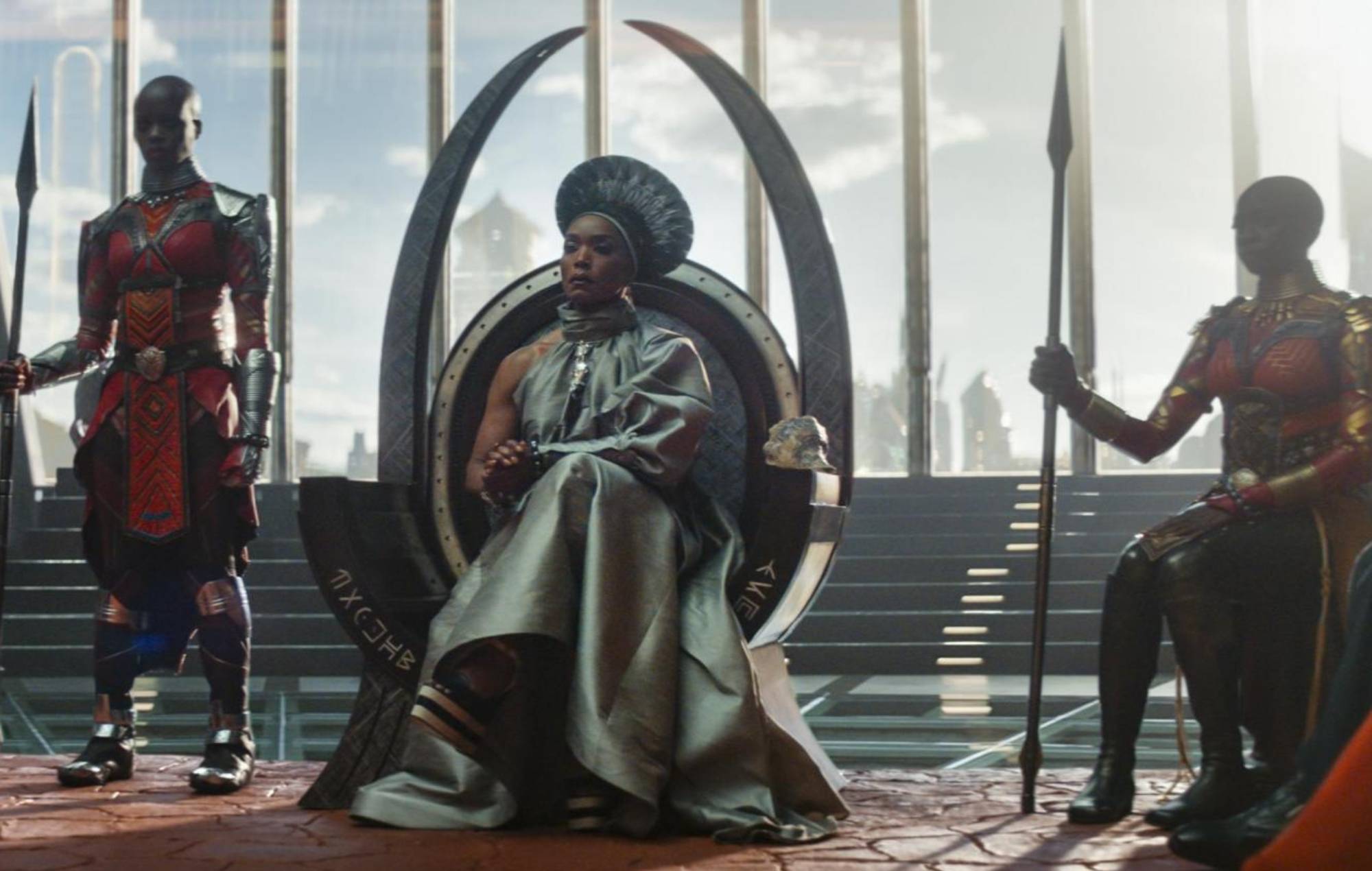‘Black Panther Wakanda Forever review’: A triumphant and emotional return
A sequel that honours the late Chadwick Boseman's legacy, while successfully looking towards the future.

The return to Wakanda was a challenging one for Disney. After Chadwick Boseman’s untimely death, the franchise found itself having to reconfigure its plans in a way that honoured the incredible actor’s defining take on Marvel’s most high-profile Black superhero, while providing the continuation of a story that redrew the lines of mainstream Hollywood African representation on screen.
Recasting Boseman’s role as King T’Challa was understandably not an option, so the sequel to the 2018 box office smash opens with the Afro-futurist nation grappling with the death of their hero – a shadow that looms large as Wakanda faces an uncertain direction. Led by Angela Bassett’s indomitable characterisation of Ramonda, the grieving sovereign queen mother’s instinct is to withdraw from the global path that T’Challa previously set the country on.
This time, the women take the spotlight with Shuri (Letitia Wright) grappling to process her emotions and the weight of how the mythical ‘Black Panther’ legend fits into a modern tech-ruled society. As Ramonda and Shuri search for answers, countries around the world apply pressure on Wakanda to allow them access to its precious vibranium source through both formal and not so diplomatic means, with futile results. Undeterred, the CIA discovers a source of the precious metal in the Atlantic Ocean.
Before it has the opportunity to plunder its discovery, the group comes under assault from a defiant population of warriors from the unknown underwater kingdom of Talokan, a mysterious deep sea nation led by Namor, brilliantly played by Mexican star Tenoch Huerta. In a move that revises the antihero’s backstory, Marvel blends mythical Atlantis with the paradise of Tlālōcān from Aztec mythology, offering a wholly original take on the character’s origin, instead grounding him and his people in the very real Mesoamerican plight faced by the Aztecs when the Spanish invaded and colonised the region in the 16th century.
It’s a smart move, allowing Marvel to distance itself from DC’s Aquaman while giving its infamous antihero a more relatable origin. However, the clash between the Wakandans and Talokanils feels slightly regressive and the film could have probably benefitted from not centring its entire plot around a brutal war between two proud nations whose real enemy is not each other, but rather the capitalistic West that desires to strip their resources for use as weapons.
The mighty female ensemble is emboldened with the addition of Michaela Coel as Aneka, a brash queer member of Wakanda’s special forces troop, the Dora Milaje, led by Okoye (Danai Gurira). Marking another major debut into the MCU is Riri Williams (Dominique Thorne), a tech genius and quip-ready MIT student who is set to become superhero Ironheart in her upcoming solo Disney+ series. Director Ryan Coogler does well to balance the extended cast and push the Black Panther universe forward, even if the film can at times feels overly convoluted when trying to keep the momentum rolling.
Wakanda Forever finds itself stepping honourably, if cautiously, out of the legacy of Boseman’s phenomenal initial Black Panther outing, with the end result giving the franchise room to grow towards a more multi-layered future when Wakanda returns in its next outing on Disney+ for its planned TV series. In doing so, the Black Panther legacy affirms its place at the heart of the MCU’s future.
